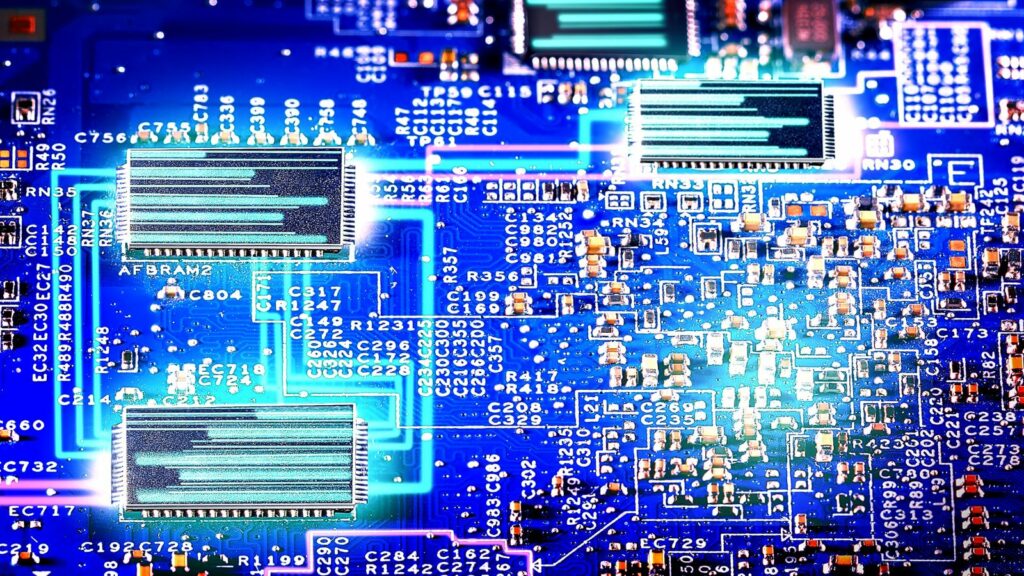As we stand on the brink of a new era, the quantum computing revolution is no longer a concept of the future, but a reality of today. This groundbreaking technology is set to redefine our understanding of computing, pushing the boundaries of what’s possible. But how can you get a taste of this revolution without breaking the bank?
Enter the world of free quantum computing tools. These platforms are opening doors, making quantum computing accessible to anyone with an internet connection. Whether you’re a seasoned programmer or a curious novice, these tools are your ticket to the quantum realm. Let’s dive in and explore the best free tools that are making quantum computing a reality for everyone.
Free Quantum Computing Tools
Breaking down the walls of advanced technology, numerous free quantum computing tools emerge on the front line. These tools open doors for everyone, regardless of their programming experience, to unlock the potentials of quantum computing.

Quantum Computing, at its core, is the study of how to harness the unique properties of quantum mechanics in the field of computing. Leveraging the concept of superposition and entanglement, it significantly increases the processing power. Unlike traditional binary computer systems which use bits (0s or 1s), it employs quantum bits, or ‘qubits’. These qubits can exist in multiple states at once, solving complex computational problems at speed, which is currently unachievable by traditional computing methods.
Emphasizing the significance of quantum resources’ accessibility, it’s crucial in democratizing the understanding and usage of quantum computing. By making these free quantum computing tools available, it equips individuals to contribute to the development and application of quantum technology. As a result, it fosters innovation, prompts breakthroughs, and propels the world into the new era of Quantum Computing.
Key Features of Free Quantum Computing Tools
The features of free quantum computing tools provide unique benefits to users interested in exploring this advanced technology. Essential elements of these tools break down the barriers to understanding and utilizing quantum computing for all interested, regardless of their programming background.

Simulation capabilities form an integral core of free quantum computing tools. They transform traditional computing principles into quantum-strong platforms. These capabilities include the simulation of complex quantum algorithms and quantum logic gate operations, delivering high-fidelity results to end-users. Such functionality illustrates quantum supremacy by enabling users, for example, to render Shor’s algorithm or Grover’s algorithm which outperform their classic computing counterparts.
Equally important among the features of free quantum computing tools is the user interface and overall experience. User-friendly interfaces and coherent dashboards enhance the user journey by providing intuitive, navigable platforms. Many tools in the quantum computing eco-space, like the IBM’s quantum composer or Microsoft’s Q# development kit, showcase modern interfaces that help users construct quantum circuits with drag and drop elements.
Popular Free Quantum Computing Tools
Making previously complex tech accessible, a variety of free quantum computing tools have become notable assets in the industry. Within these, IBM Quantum Experience, Microsoft Quantum Development Kit, and Google’s Cirq undoubtedly hold pioneering positions.

Working as a cloud-based platform, IBM Quantum Experience offers explorative grounds for beginners and professionals alike. It provides simulation capabilities, enabling users to understand complex quantum algorithms and logic gate operations better. This tool reveals an opportunity for hands-on learning experiences, providing a bridge between abstract concepts and practical applications of quantum computing. For example, IBM’s quantum composer—a part of the IBM Quantum Experience—boasts an intuitive design. With a user-friendly platform that includes elements like drag-and-drop features, it offers extensive documentation support to users, aiding in the learning curve.
Another strong contender in the quantum computing world, Microsoft Quantum Development Kit, proves its value by facilitating the development of quantum algorithms. It uses Q#, a unique language dedicated to quantum computing that integrates seamlessly with the .NET language ecosystem. Microsoft’s toolkit breaks down barriers by delivering an efficient quantum simulator, quantum libraries, and Q# language features.

